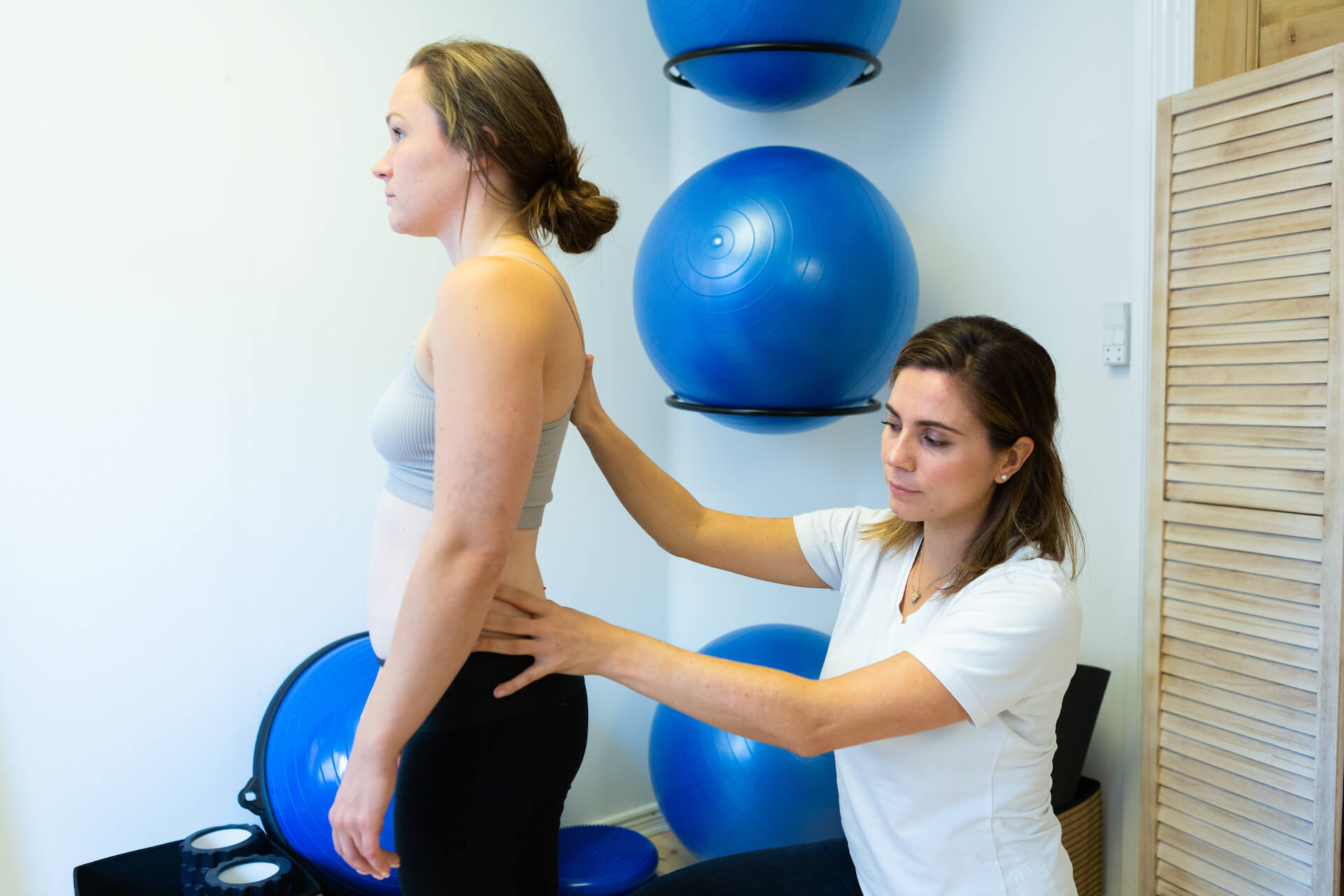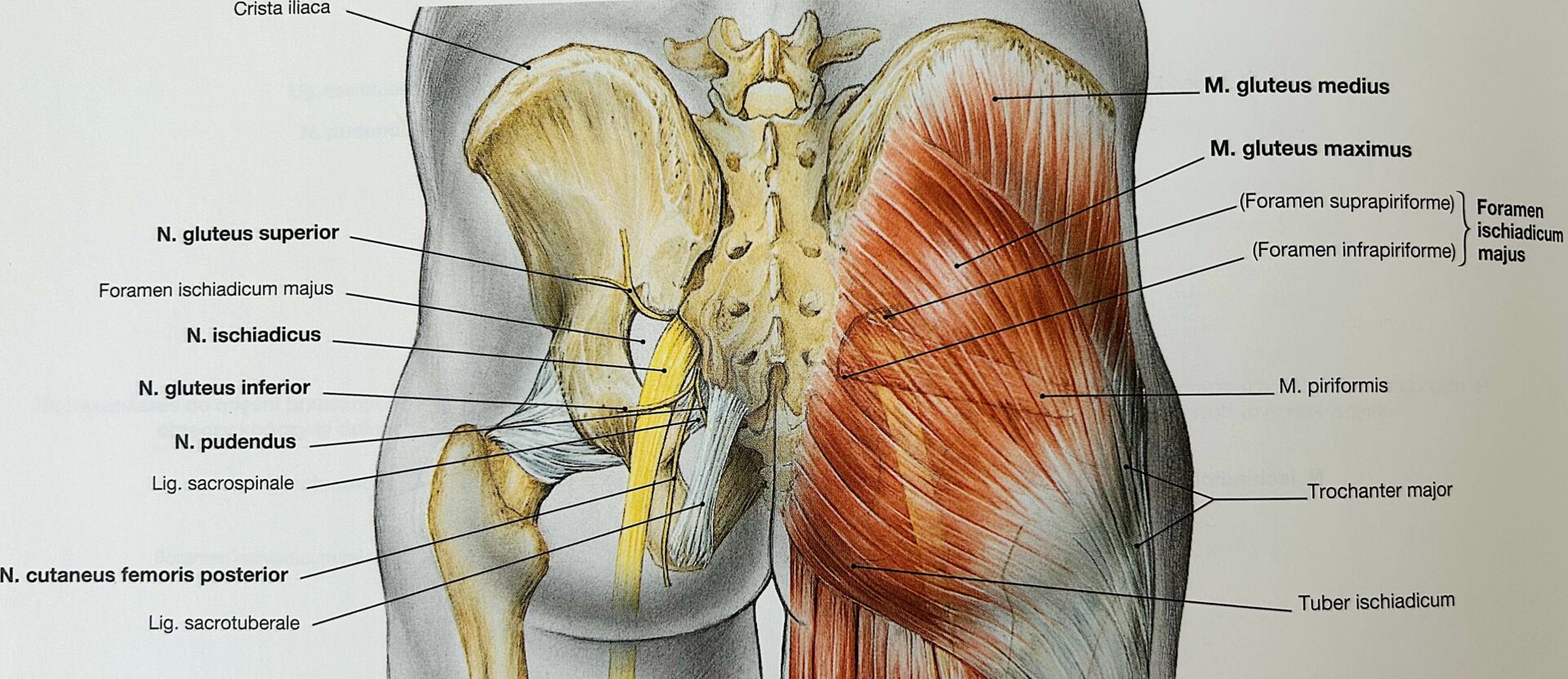Hip: Piriformis syndrome
Piriformis syndrome is a neuromuscular issue, in which the piriformis muscle (located in the gluteal region, between the sacrum and the great trochanter of the femur) compresses the passage of the sciatic nerve.
This syndrome is often been associated with other problems (such as disc pathologies, myofascial retractions or vertebral blocks) and is a very frequent condition, above all due to an excessively sedentary lifestyle.
Piriformis syndrome is a condition in which this muscle is inflamed (or shortened), creating an area of stenosis that can affect both the sciatic nerve and the entire hip joint.




